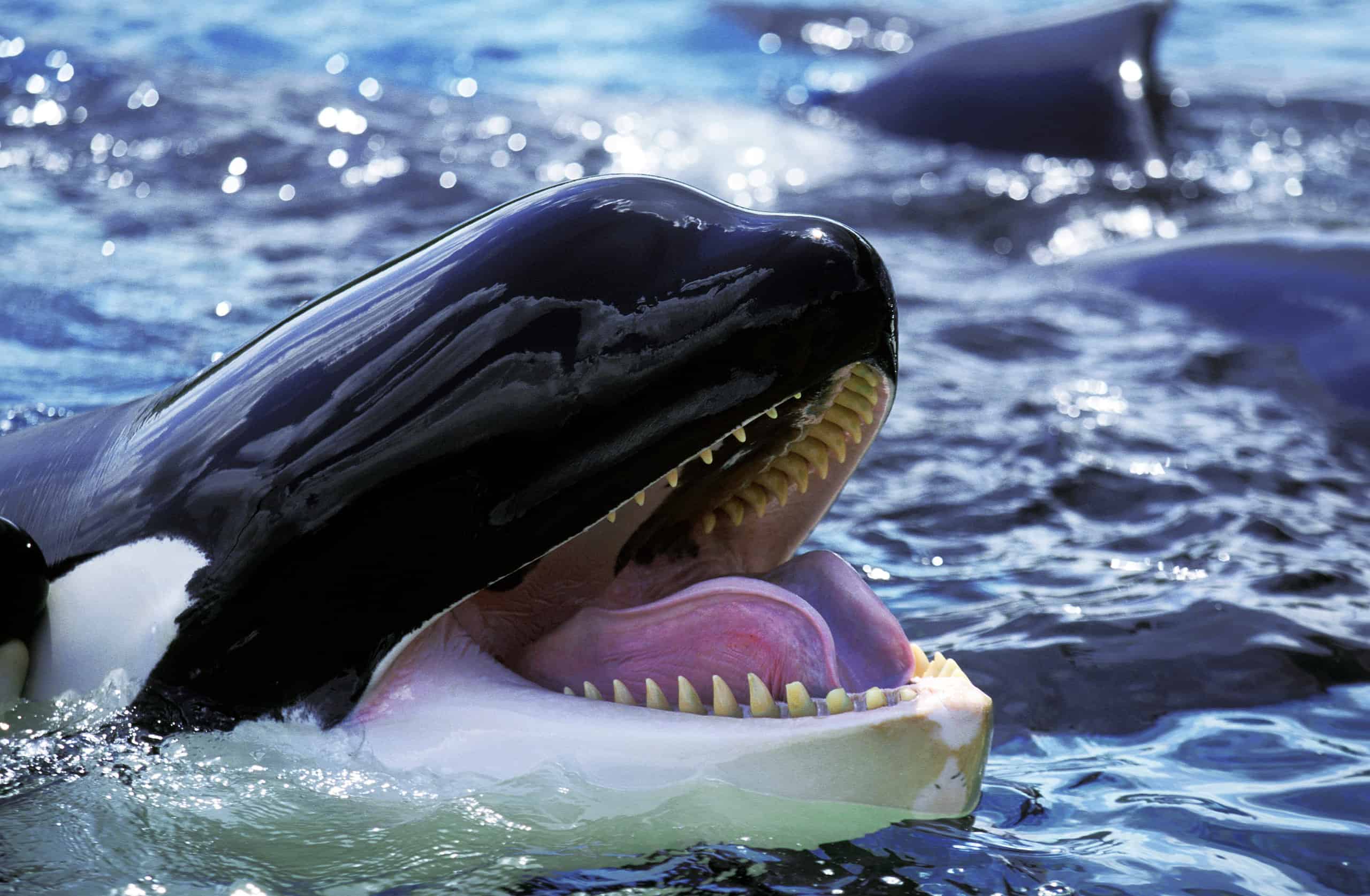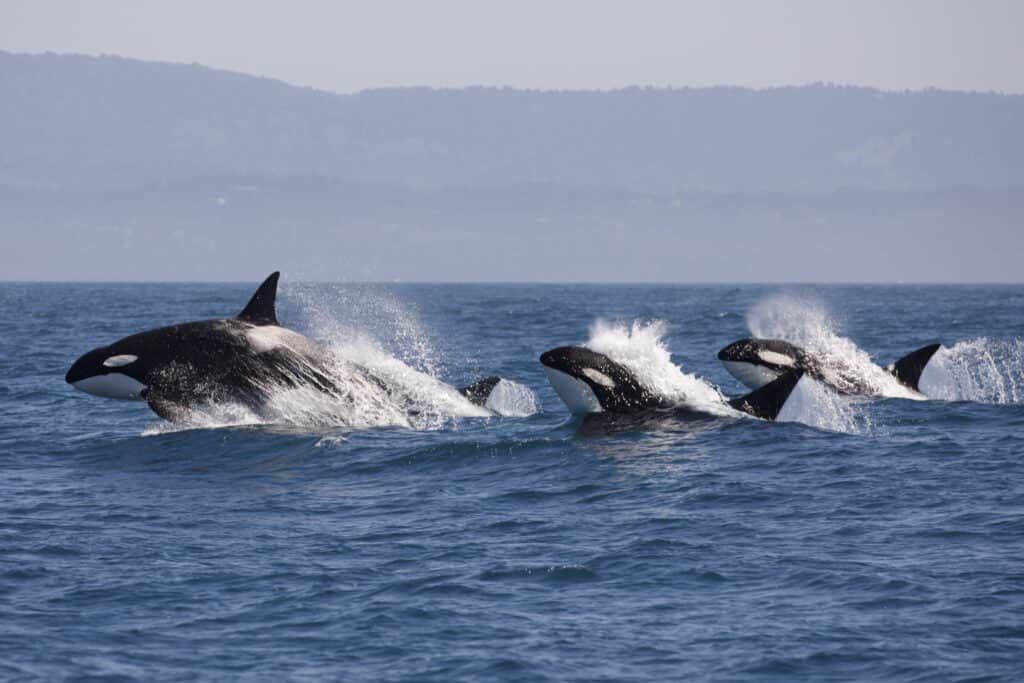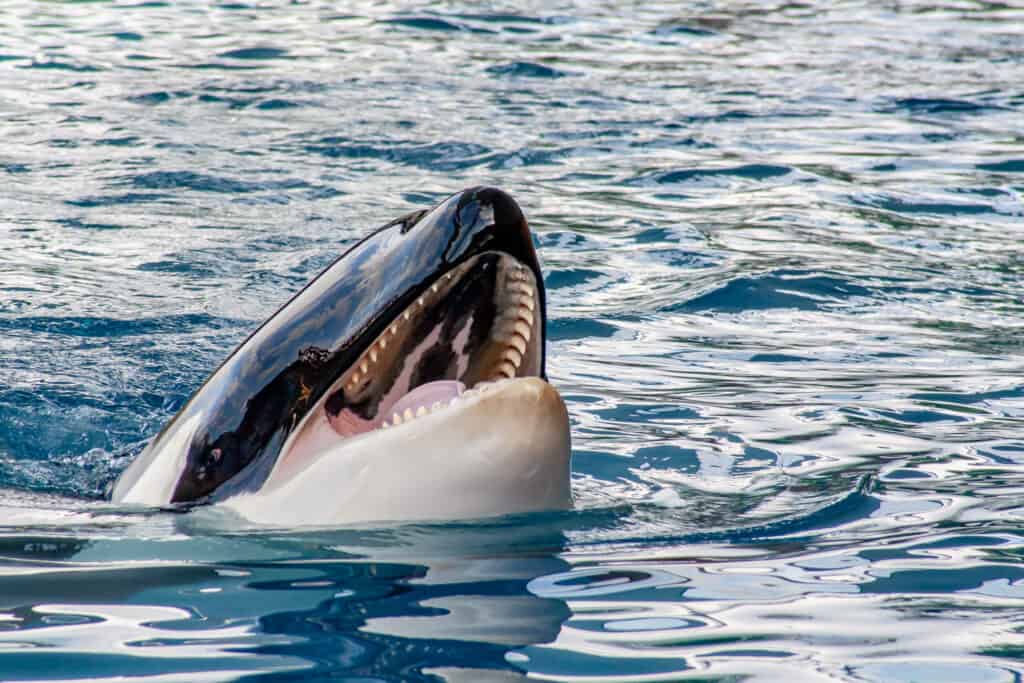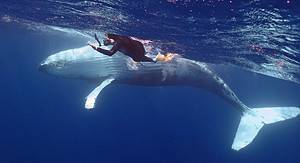Continue reading for our analysis...

Predatory animals use a variety of hunting techniques. Some stalk their prey with great stealth and then lunge, others hang around in trees waiting for an unsuspecting animal to wander underneath and then leap down. Others use their superior speed and stamina to chase animals either on land or in the water.
But in this staggering video, we see a unique yet highly effective approach. It is adopted by the magnificent killer whales (orca) and it was captured near British Columbia, the most western province in Canada.
Orca Hunting Near the Canadian Coast
Against a soundtrack of dramatic music, the footage starts with stunning aerial footage of three or four orcas in this beautiful environment with thousands of sea birds soaring above them and in the water. But the orca are not here for the birds, they have a larger target in mind.
Suddenly, one of the orcas breaches the surface and we get a glimpse of its powerful tail fin before it crashes back down into the waves accompanied by hollers from the human on-lookers. When you first watch this, it is not easy to spot why the whale has done this but the second attempt reveals all.
The close-up footage shows the whale flick its strong tail and launch the seal dozens of feet into the air. It really is the most incredible sight. Being hit into the air with such force and landing on the water from such a height is likely to stun the seal — making it easy for the orca to eat.

Orcas need to eat around 300 pounds of food a day to maintain their health.
©Tory Kallman/Shutterstock.com
Nutrition and Seal Meat
Orcas are magnificent animals living in oceans and coastal waters in locations all over the world. They are large mammals, reaching up to 15,000 pounds in weight. They need as much as 300 pounds of food a day to thrive. Orcas are carnivores and apex predators but their diet varies by location. They can eat fish (salmon is a favorite), sea lions, and even other whales such as the grey whale. Seals are an excellent source of nutrition for many animals including killer whales as they provide a wide range of polyunsaturated fatty acids, proteins, minerals, and vitamins. And when you have skills like this to catch them, why wouldn’t you make them part of your diet? It’s time for lift-off!

Orcas have earned the name “killer whales” as they are apex predators and can kill almost any prey in their habitat.
©Guillermo El Oso/Shutterstock.com
More Incredible Orca Videos You Might Like
Orcas are known for their incredible persistence, vicious tendencies, and impressive speeds. In the video below you can witness their mind-boggling levels of swimming speed as they follow right behind a boat full of tourists with ease.
Thank you for reading! Have some feedback for us? Contact the AZ Animals editorial team.






